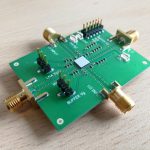
Introduction
In today’s interconnected world, connectors provide reliable solutions for establishing communication and enabling seamless data transfer between various electronic devices. These small yet versatile components are parts of almost every aspect of modern technology, from computers and smartphones to industrial machinery and automobiles. This article overviews the most popular types of connectors and their essential functions, highlighting their importance in our daily lives and industries.
A Brief Introduction to Connectors
As the name implies, connectors are mechanical devices designed to join or connect two or more electrical, electronic, or mechanical components together. They establish an electrical, mechanical, or optical connection between these components, enabling the seamless flow of current, signals, or data. Connectors come in multiple shapes, sizes, and configurations, and each type of connector is tailored to suit specific applications and industries.
Most Popular Types of Connectors
Connectors are categorised into various types based on their specific applications, materials, and shapes. Some of the most typical connector types include:
- Electrical Connectors: These connectors are designed to establish electrical connections between components in various electronic devices, ensuring a secure and reliable current flow. Electrical connectors prevent loose connections, thus avoiding short circuits and other electrical hazards. Pin connectors, socket connectors, and blade connectors come under the umbrella of electric connectors.
- USB (Universal Serial Bus) Connectors: USB connectors are ubiquitous for connecting various peripherals to computers and other devices. The most prevalent versions include USB-A, USB-B, USB-C, and micro-USB, where the last one, in particular, has gained popularity due to its reversible design and faster data transfer speeds.
- Audio Connectors: Audio connectors are essential for transmitting audio signals between devices. The 3.5mm headphone jack and the larger 6.35mm audio jack are standard connectors for headphones, speakers, and other audio equipment.
- HDMI (High-Definition Multimedia Interface) Connectors: HDMI connectors are prevalent in modern home entertainment systems. These connectors transmit HD audio and video signals between devices like TVs, projectors, gaming consoles, and media players.
- Ethernet Connectors: Ethernet connectors, like RJ-45, are popular networking connectors allowing devices connectivity to local area networks (LANs) and the internet.
- Power Connectors: Power connectors supply electrical power to devices like laptops, smartphones, and electronic appliances. These connectors come in various forms, including DC power jacks and plugs.
- D-Sub Connectors: D-sub connectors or D-subminiature connectors are suitable for data and video connections in computers and other electronic devices.
- Fiber Optic Connectors: Fiber optic connectors enable high-speed data transmission over long distances using optical fibres. They are crucial in telecommunications and data center applications due to their high efficiency across long distances.
- RF Connectors: RF or Radio Frequency connectors are designed for high-frequency signals and are common in wireless communication systems and radio equipment. These connectors maintain impedance matching while minimising signal losses. Popular RF connectors include SMA, BNC, and N connectors.
- Automotive Connectors: Automotive connectors are engineered to withstand harsh environmental conditions and vibrations commonly encountered in vehicles. They are indispensable in automotive electronics, control systems, and sensors.
- Circular Connectors: Circular connectors with a round interface are often preferred in scenarios where secure connections and resistance to environmental factors are crucial. They are commonly used in aerospace, military, and industrial applications.
Functions of Connectors: Uncovering Their Versatility
Connectors serve several essential functions in various applications, enabling efficient and reliable performances. Some of the key functions of connectors include:
- Data Transfer – One of the fundamental functions of connectors is to facilitate data transfer between devices. Connectors ensure smooth and fast data transmission, whether transferring files between a computer and a USB flash drive or streaming high-quality videos from a media player to a television using an HDMI cable.
- Power Supply – Power connectors are responsible for power delivery to multiple compatible devices, ranging from small electronic gadgets to heavy machinery in industrial settings. These connectors can handle specific power requirements and ensure safe power delivery.
- Audio and Video Transmission – Audio and video connectors are crucial for transmitting high-quality audio and video signals between devices like speakers, headphones, TVs, projectors, and gaming consoles. They ensure the accurate reproduction of audio and video content.
- Networking and Internet Connectivity – Ethernet connectors, commonly found in networking equipment, enable devices to connect to local networks and the Internet. They play a primary role in allowing internet connectivity and local data sharing.
- Charging and Battery Management – With the increasing reliance on portable electronic devices, connectors for charging and battery management have become indispensable. These connectors allow devices to recharge their batteries efficiently and manage power flow.
- Mechanical Fastening – Connectors often provide mechanical fastening, securing components in place while maintaining electrical continuity. This is particularly critical in industrial and automotive applications, where vibrations and movement are common.
- Signal Integrity – High-quality connectors are essential for maintaining signal integrity during data transmission. A well-designed connector ensures minimal signal loss and interference, resulting in better performance and reliability.
Bottom Lines
Connectors are the must-have components contributing to the advanced technological world, enabling seamless communication and data exchange between electronic devices and systems. From powering our smartphones to connecting us to the internet and providing immersive audiovisual experiences, connectors play a crucial role in shaping our modern lives. They come in various types and serve different functions, catering to diverse applications across industries. As technology evolves, connectors will continue to advance, making our devices smarter, faster, and more efficient.





















